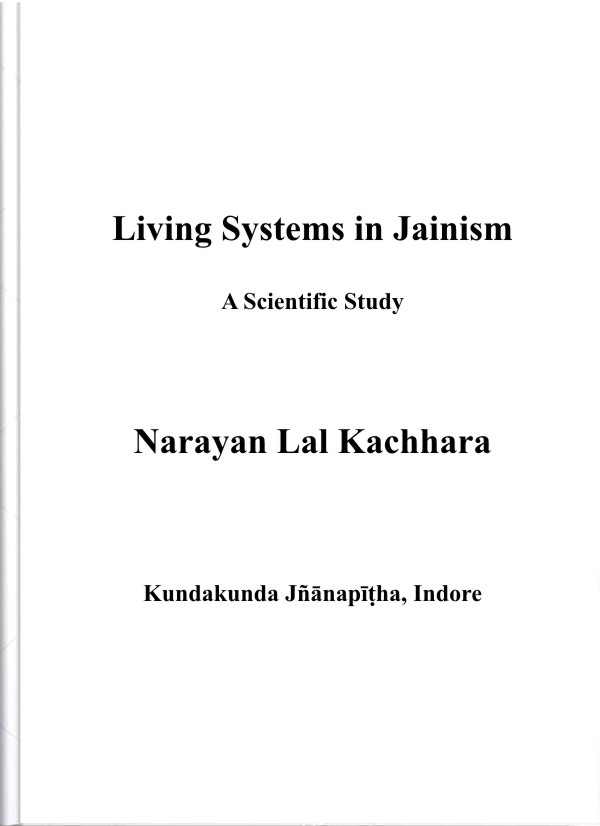The dravya karmas are physical entities and therefore follow the laws (whether known or unknown) of science. We saw in Chapter 3 that karma varganas are attracted from the cosmos by the principle of resonance. The karma body vibrates due to the adhyvasaya of the soul that is caused by activities and has a frequency spectrum. Karma varganas of a specific frequency are attracted by the resonance principle and bond with the karma body by the force of the passions, kashayas, and emotions, nokashyas. A wide range of karmas bonds at any instant, usually seven out of the eight main types (since age-determining karma only bonds once per lifetime).
To simplify the process, we can group karmas into two categories: ghatin, or psychical, and aghatin, or biological, karma. The varganas of both groups of karma are attracted and bond through similar causes (yoga and kashaya), but the process of bonding differs. The bonding of ghatin or psychical karma is mainly a psychical (mental) phenomenon, depending largely on the action of the conscious mind; the body and verbal activities have a supporting role, asit is assumed that their effect on the mind accounts for their actions. The operation of aghatin or biological karma mainly depends upon the activities of the body and speech, and the supporting role of mental activity is accounted for by its effects on brain and body. This simplified model of the karma process makes the analysis of samvara and nirjara easier.
We have shown in Chapter 5 that biological intelligence is superior to manifested psychical intelligence. This is the same as saying that the psychical karmas destroy the basic qualities of the soul and that biological karmas do not. This is why all psychical karmas are considered to be demerit or inauspicious karmas and biological karmas can be either merit or demerit types. It is also borne out that to bond merit karma the soul has to engage in bodily and speech activities; the mere mental activity of thinking without any bodily activity cannot bond merit karma. It is therefore clear that good actions of the soul that are performed by the body and speech are far more meritorious than the mere mental exercise of thinking, even if the thoughts are good. To do anything good for the self and society, the soul has to engage in good bodily and speech activities as well as possess good thoughts. Service to needy, weak, sick, destitute, poor, and noble persons, with feelings of pleasure, is the way to earn merit. These karmas result in pleasure and fame on their fruition, in addition to future births in the higher states of human and celestial beings. Tirthankara naama karma is the highest kind of merit karma.
Negative thinking, thoughts of violence and harming other beings, thoughts containing passions and inauspicious emotions, thoughts of jealousy, slander, sloth, self-interest at the cost of others, and so on bond demerit karma of the psychical type. Bodily and verbal actions that hurt others, injuring other beings, stealing, telling lies, snatching, looting, adulteration, or indulging in any activity that violates the rights and freedom of other living beings, etc. bonds demerit karma of the biological type.
Nirjara is the reverse of the bondingprocess. In this process, the activities of the mind, body and speech generate vibrations that interact with the karma field and nullify the karma of a similar nature through the principle of resonance, thereby reducing the stock of karma. The karmas so eliminated migrate back into the cosmos as karma varganas. We shall make use of this principle in describing the path of emancipation.
 Dr. N.L. Kachhara
Dr. N.L. Kachhara
